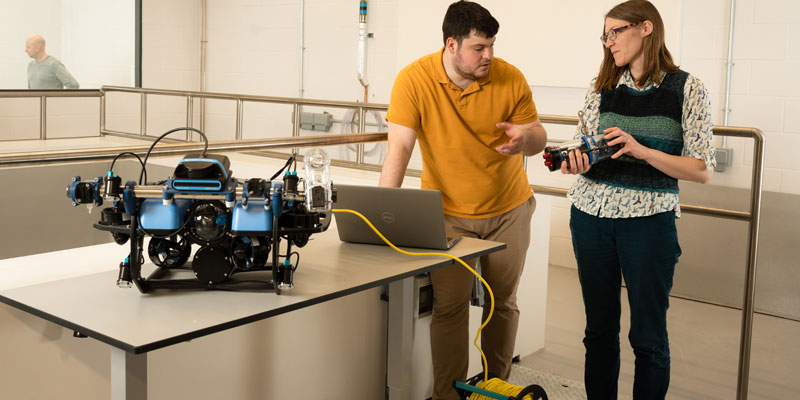
Design and verification
We work to improve the state of the art and of the practice in building RCAS that are safe - and that can be shown to be safe - both before and during their deployment, regardless of any changes to their working environment.
Our community is YorRobots, comprising the York researchers that work in the design and verification of robots, with representation across seven departments and one school, covering nine disciplines.
We work together to ensure that advanced RCAS are designed in a way to ensure it is safe. It is not enough for RCAS to be safe by design, though; they must also be verifiable by design - built in such a way that their safety can be proven.
Nor is it enough for their safety to be verified before deployment; we must also be able to trust these systems during their operation. This means designing them so that we can monitor whether their safety is being compromised by the changing complexities of their operating environment - whether that be the physical demands of high altitude or ocean depths, or the variability and unpredictability introduced by any human involvement.
Finally, for RCAS to remain safe, we need to design their hardware and software so that they are capable of evolving and adapting (in both a physical and logical sense) to their changing environment.

“The Institute brings so much multidisciplinary expertise under one roof that we all end up thinking outside the box, and that’s where the best new ideas and opportunities come from.”
Professor Ana Cavalcanti, Research Lead.
